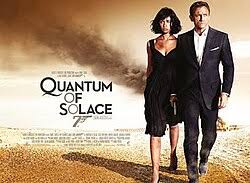
Introduction
The James Bond film series, based on the character created by Ian Fleming in the 1950s, has been a significant staple in global cinematic culture since its inception. With its combination of espionage, action, and glamour, the series has not only entertained audiences for generations but has also influenced other film genres. Currently celebrating its 60th anniversary, the James Bond movies continue to attract both long-time fans and new viewers, highlighting their enduring relevance.
Key Milestones in the James Bond Franchise
The first official James Bond film, ‘Dr. No,’ was released in 1962, introducing Sean Connery as the iconic spy. Throughout the years, the franchise has evolved, celebrating varying artistic directions, notable actors, and directors. Key films like ‘Goldfinger’ (1964), ‘Skyfall’ (2012), and ‘No Time to Die’ (2021) have not only amassed box office success but also altered the landscape of action movies.
Each James Bond film reflects the socio-political climates of its respective era. For instance, the cold war backdrop of the earlier films led to a focus on espionage and tension, while more recent adaptations like ‘Skyfall’ address contemporary issues, including the rise of cyber warfare and personal identity crises. Daniel Craig’s portrayal from ‘Casino Royale’ (2006) to ‘No Time to Die’ has shaped Bond’s narrative into a more nuanced character, catering to modern audiences’ expectations.
James Bond and Cultural Significance
The franchise has left a notable mark on global culture. Beyond its thrilling plots, Bond movies are celebrated for their memorable quotes, iconic theme music, and luxurious lifestyle representations. The opening sequence themes and signature style have inspired filmmakers worldwide and have become a template for various action-adventure narratives.
Furthermore, the franchise has sparked ongoing discussions regarding gender representation, with recent films making efforts to address these critiques by enhancing female roles and diversifying the narrative scope. This evolution reflects changing cultural attitudes and enhances the franchise’s relevance.
Conclusion
As the James Bond movies continue to be produced, they embody a unique blend of tradition and innovation. With planned future releases, including a new lead actor taking over the role, the legacy of James Bond seems far from over. The franchise will undoubtedly continue to shape and reflect cultural narratives, maintaining its status as a hallmark of cinematic achievement. For fans and newcomers alike, every new Bond film is an invitation into a world of intrigue, adventure, and spectacle, keeping the spirit of James Bond alive into the future.
You may also like

The Importance of Storytelling in Modern Society

Understanding the Fall Season: Change, Beauty, and Tradition
